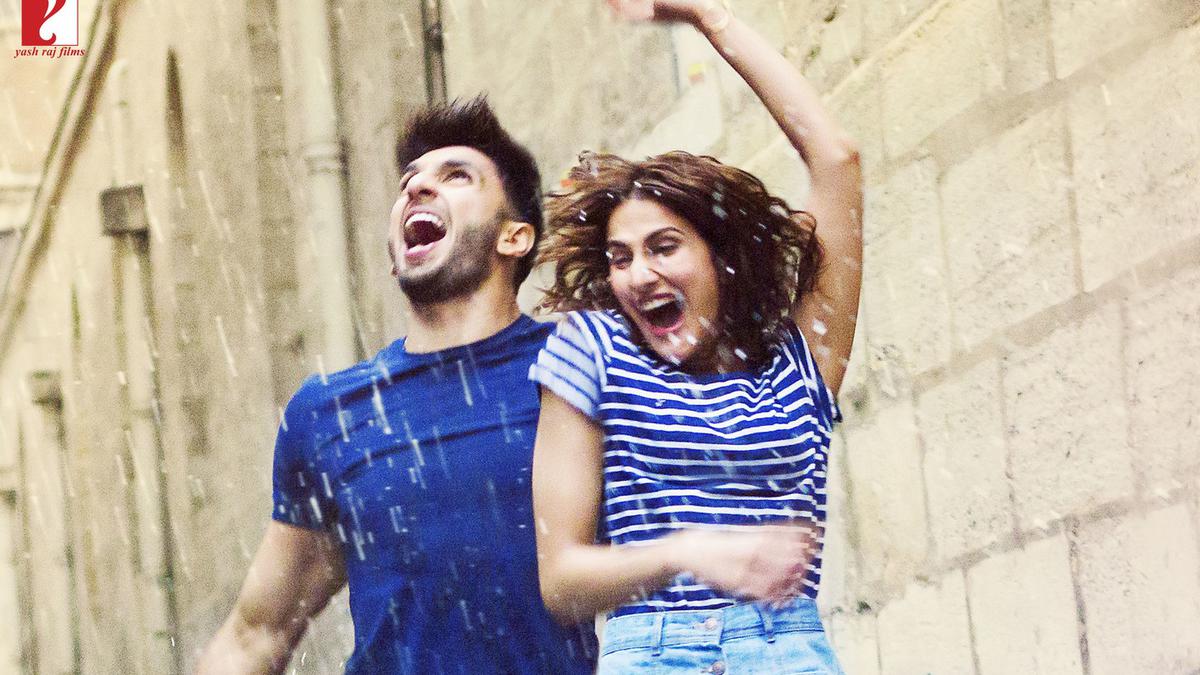
Redefining Bollywood: introspection and the quest for authenticity Premium
The Hindu
Mainstream Bollywood is self-reflecting, questioning entrenched patriarchy, sexism, and biases. Marquee banners are indulging in introspection, but the change is only cosmetic. The noble intentions often feel contrived and the romantic build-up lacks intensity. The films pause to pontificate and the hero dances to “Dola Re Dola” to join his prospective father-in-law. The experiment requires courage, but the subversion remains adsorbed on the surface. The message is to be true to oneself.
Some of the releases in recent weeks suggest that mainstream Bollywood is in a self-reflective mood. Like the customary transformation scene in family dramas where the ageing generation gives in to the views of their kids after resisting change in the first half, Bollywood bigwigs seem eager to scrutinise the stereotypical tropes that once defined their point of view. They are questioning and scratching off entrenched patriarchy, casual everyday sexism, and gender and cultural biases that have blighted our society and cinema alike in the name of tradition and custom, but in the process, they are losing out on the verve and lilt that Hindi film romance once possessed.
Perhaps propelled by the ripples that some of the content on OTT platforms has created or spurred by the will to challenge their legacy, marquee banners are indulging in introspection. It is reflected in Rajshri Productions’ Uunchai in 2022, Nadiadwala Grandson Entertainment’s Satyaprem Ki Katha and Bawaal and Dharma Production’s JugJugg Jeeyo and Rocky Aur Rani Ki Prem Kahaani (RARKPK). Even Anurag Kashyap who promised a parallel universe to mainstream fluff got caught in this game of catching up with the youth with Almost Pyaar with DJ Mohabbat. So did Luv Ranjan when he mounted Tu Jhoothi Main Makkaar earlier this year.
In RARKPK, Johar has even tossed a low-hanging metaphor — swad wahi, soch nayi (same flavour, new philosophy). The experiment requires courage to get over the obstacles of experience and ego but a closer scrutiny suggests that the change is only cosmetic and the new philosophy demands a newer way of putting across the message. At present, it is a case of neither here nor there as the subversion remains adsorbed on the surface. The noble intentions behind these films often feel contrived as if the creators are chasing applause for their message, only to revert to the status quo for their trusted multiplex audience. This renders their efforts seem more pretentious than impactful. The romantic build-up in the movie RARKPK, between a Punjabi ‘heartthrob’ and a journalist from an intellectual Bengali family lacks the intensity that could be overlooked by the stagy but progressive second half. Cinema like all art is about intent and gaze and here it feels like the film pauses to pontificate like a generic television soap. We are having a dialogue on male insensitivity towards women by taking Ranveer Singh to a lingerie shop. We are making the hero dance to “Dola Re Dola” to join his prospective father-in-law, a Kathak exponent.
The screenplay reads like a PowerPoint presentation against cancel culture and surprisingly, after all the fuss over making parents see the parallax in their world view, the girl makes peace with the father of the boy who comes across as a misogynist. Similarly, in JugJugg Jeeyo, the sexist attitude of the father played by Anil Kapoor goes unpunished. It is like pushing the envelope and then gingerly pulling it back lest it offend the audience who loved Kuch Kuch Hota Hai for promoting make-up as a must for girls and the notion that short dresses attract unwanted male attention. Essentially, in Bawaal, Varun Dhawan-Jahnvi Kapoor-starrer is bloated out of proportion perhaps to match the scale of the producer’s image and the urge to reach out to an international audience. The film literally keeps requesting the audience to be open-minded to accept the bizarre idea of a couple learning to bury their differences when the teacher husband is schooled on the pain and sufferings of the Jews during the Second World War. Hindi cinema has sold even more bizarre concepts to the paying public in the past but in those films, the makers were not trying to be too clever by half.
Bawaal is not the only one in recent times that could not hold on to its one-trick show. Aanand L Rai’s Atrangi Re, a quirky love triangle on mental health, also could not pass muster once the director showed his cards.
The premise of Bawaal could have worked if Varun was shown as a primary school teacher in the Uttar Pradesh village and the couple learnt from the sufferings of one of the episodes of the freedom movement. But, perhaps, the makers were keen on making a big splash. Director Nitesh Tiwari recently said that every film could be subjected to scrutiny when viewed through a magnifying glass. It is true but the details invariable come out when the director fails to hold suspension of disbelief even in the first viewing. Music plays an important role in the process but the big shots are borrowing from the past to sustain the love stories of today. Johar has to rework Madan Mohan’s 1966 composition Jhumka Gira Re to hook the audience of today.
Originality is definitely in short supply and cheating is also a difficult art to master.





















 Run 3 Space | Play Space Running Game
Run 3 Space | Play Space Running Game Traffic Jam 3D | Online Racing Game
Traffic Jam 3D | Online Racing Game Duck Hunt | Play Old Classic Game
Duck Hunt | Play Old Classic Game











